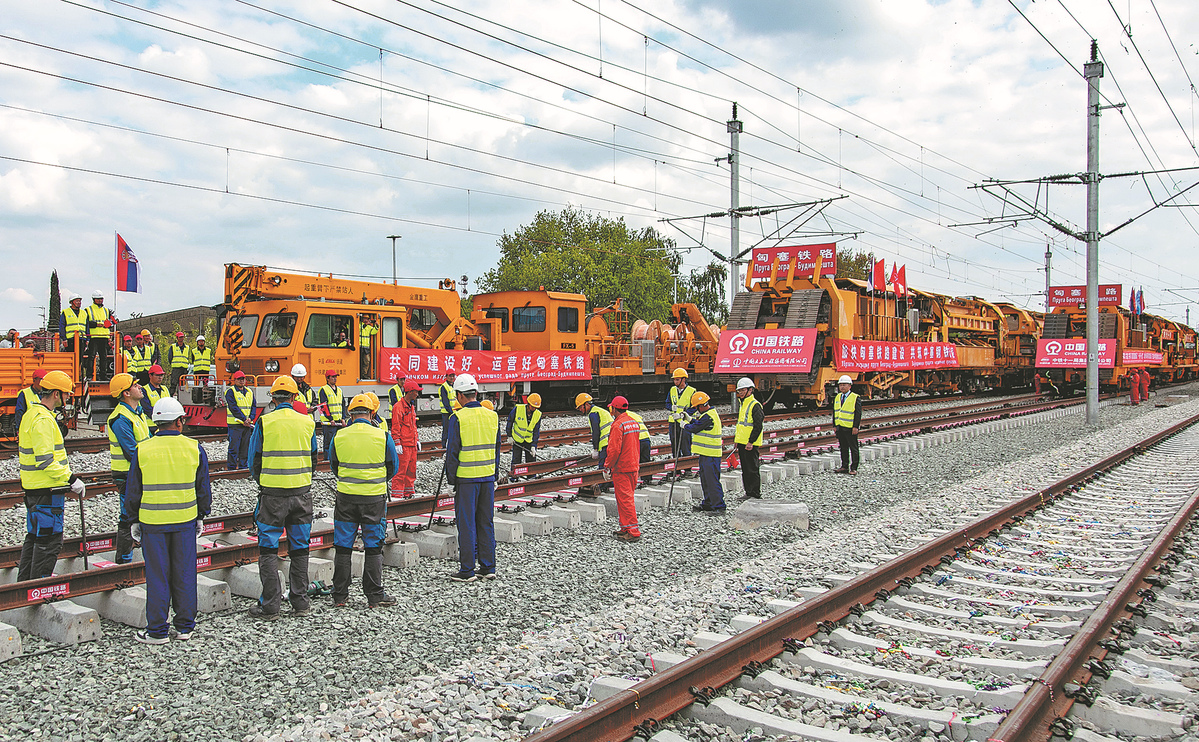China’s Diplomatic Tour of Europe

During his first visit to Europe in five years, Chinese President Xi Jinping is intent on forging new relationships. The three countries he visits—France, Serbia, and Hungary—all see China as a partner and are eager to strengthen economic ties.
Over the past six months, French President Emmanuel Macron has visited both India and Brazil as he seeks to position his country at a fulcrum between the Western world and the BRICS group of developing countries. As the distance between the Global South and Western powers seemingly continues widening, France has stepped forward as a bridge for China.
China was the biggest investor of Serbia last year, as well as its second-largest trading partner, and Hungarian Prime Minister Viktor Orbán has backed the inflow of huge Chinese investment.
China-France Trade
Xi’s visit to France marked the 60th anniversary of the establishment of diplomatic relations between the two countries. In January, the Franco-Chinese Year of Cultural Tourism was launched, bolstering cultural exchange.
France’s early recognition of the potential of trade with China’s expanding market pushed it to become the first major Western country to establish diplomatic relations with China. Cementing this camaraderie, China and France signed a number of agreements in areas such as manufacturing, green development, new energy, and innovation.
France-based Airbus is in talks with China on a potential major aircraft order. Xi and Macron also reached agreements to strengthen cooperation among small and medium-sized enterprises.
China and France are highly complementary economically, which creates vast opportunities for trade and investment. China has a competitive advantage in manufacturing electronic products and machinery while France excels in aerospace, nuclear energy, high-end consumer goods, agricultural products, and wine.
France has become China’s third-largest trading partner in the European Union (EU), with a total bilateral trade volume of US$78.9 billion in 2023. It is also China’s third-largest source of actual investment. Meanwhile, China is France’s largest trading partner in Asia and seventh-largest globally.
Prior to Xi’s visit, Macron appealed for more integrated European defenses and stressed that the continent must not become a vassal of the United States, as he outlined his vision for an independent Europe in a speech at Sorbonne University in Paris.
Broader Perspective
Xi’s visit to Serbia, the first in eight years, is significant within the cooperation framework of China and Central and Eastern European countries and the Belt and Road Initiative (BRI). The visit to Hungary coincided with the 75th anniversary of China-Hungary diplomatic relations.
Serbian President Alexandar Vučić and Hungarian Prime Minister Orbán attended the third Belt and Road Forum for International Cooperation in Beijing last October. The BRI has helped breathe new life into a century-old Smederevo steel plant in Serbia, which was suffering from an uncertain future. In April 2016, the Chinese firm HeSteel bought the plant for US$51.9 million, introduced more than 20 new technologies and management systems, and began utilizing waste material to produce better-quality steel. The plant became Serbia’s largest exporter in 2018. In 2023, it received the Green Agenda award jointly conferred by the EU and the UN Development Program.
Hungary is one of China’s most important trading partners in Central and Eastern Europe. Bilateral trade reached US$15.52 billion in 2022, an increase of 84 percent from 2013. According to Hungarian Minister for National Economy Marton Nagy, Hungary was able to attract a total of €13 billion (about US$13.86 billion) in foreign direct investment in 2023, of which about €8 billion (about US$8.53 billion) was from China.
Since the start of this year, a broader series of high-level engagements between China and the EU have been in the works.
In January, Belgian Prime Minister Alexander De Croo embarked on his first trip to China and signed a number of cooperation documents on economics, trade, agriculture, and food. In late March, Dutch Prime Minister Mark Rutte traveled to China with an aim to deepen the partnership in economics and trade. In April, German Chancellor Olaf Scholz visited China, accompanied by three federal ministers and a business delegation. Italian Prime Minister Giorgia Meloni is planning to visit China later this year.
Hypocrisy Exposed
Hungarian Foreign Minister Péter Szijjártó has called the actions taken by some European countries against China “hypocritical.” He is right. The de-risking narrative proposed by the European Commission in its policy framework toward China echoes Washington’s “decoupling from China” rhetoric.
Last year, the EU launched an anti-subsidy investigation into electric vehicle (EV) imports from China. Recently, the European Commission launched a probe into Chinese public procurement of medical devices following an unprecedented February probe into a Chinese trainmaker for allegedly using subsidies to undercut European suppliers.
The EU accounts for nearly 40 percent of China’s EV exports. Chinese Minister of Commerce Wang Wentao called the accusations by the U.S. and Europe regarding Chinese EVs baseless during his trip to France in early April.
Competition between China and Europe in EVs has emerged for sure. But Europe should view China as an opportunity rather than a challenge, especially after the European Investment Bank warned that the Ukraine crisis disrupted trade and aggravated inflation on basic goods like energy, food, and metals.
Europe is still mired in the Russia-Ukraine conflict, a “trap of its own making.” It has exacerbated European dependence on the U.S. and jeopardized Europe’s China policy. If Europe continues to follow the U.S. with a confrontational approach to China, it will remain a U.S. vassal.
In this backdrop, Xi’s Europe visit is closely monitored in Washington. According to Greek economist and politician Yanis Varoufakis, Xi’s visit would offer Europe the opportunity to demonstrate the capacity to manage its own interests instead of following Washington’s orders. This could be an opportune time for Europe to stand up.
The author is a business writer at tech media KrASIA and former chief editor of the Indian daily Janmabhumi.